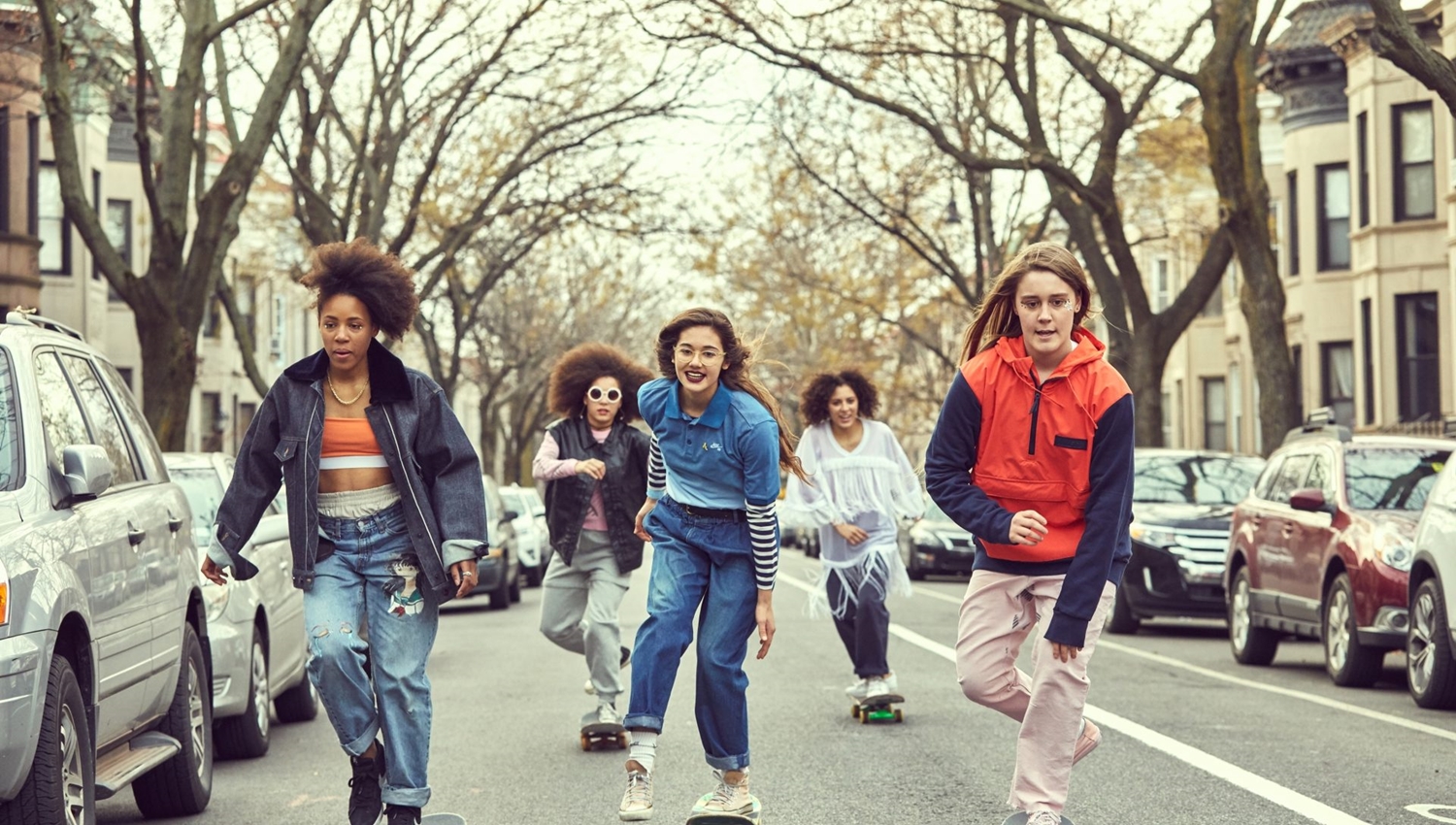
Skate Kitchen
Dustin Chase
Name me the last skater film you saw… Now name the last skater film you saw about female skateboarders. There are none, making “Skate Kitchen” something of a rarity. Crystal Moselle makes her feature film directorial debut here on a script she also wrote, based on her short film of the same topic with the same actors. In addition to short films, her cinematic experience also comes from the visual effects work she did on Oscar-nominated “Frida.” Her story of an outsider finding a groove with modern female punk skaters in New York follows stereotypes seen in other run of the mill skate flicks. Lead actress Rachelle Vinberg is quite a discovery though, also appearing in Moselle’s short film “That One Day.” The cinematography and editing are more impressive than anything happening narratively.
Introverted 18-year-old Camille (Vinberg) from Long Island, painfully explains to new best friend Janey (Lovelace) how she came to live with her mom. For the first time Camille has found a niche in this wild female skater posse called Skate Kitchen she finds via social media. They spend their days practicing tricks and maneuvers on their boards. Their downtime is spent using drugs, fighting with the local male skaters and sexual exploits. Forced to get a job following her estrangement from her mother (Rodriguez), Camille falls for co-worker Devin (Smith), who is disliked by her new friends, which threatens to disrupt her bond with these girls who have taken her in.
It becomes so gritty that viewers might want a shower after seeing Camille’s final living situation.
“Too many penises in the way,” Nina (the proud lesbian of the group) shouts when the boys hog the local skatepark. The Skate Kitchen girls discuss things like tampons, ambitions and sexual preferences in the comfort of Janey’s house because her father is the parental figure they all wish they had. The song “Young, Dumb, & Broke” has never been more appropriate than when played near the end of the film, after watching young adults perpetually waste their lives for nearly 90 minutes. A skater myself, it’s curious to me that skate culture films always follow the same path, even here from the female perspective. Based on Moselle’s own experiences, there is a freshness to “Skate Kitchen” with its modern take on the subject and from the female perspective but ultimately leans heavily on cliché for purpose and impact.
“I don’t know what I am going to do it I can’t skate,” one of the injured friends says, “It’s my whole life.” Moselle advocates drugs, reckless behavior and wasted lives by failing to insert any greater epiphany beyond Camille coming to the realization that she is looking for love in all the wrong places; and this is only after she runs out of places to crash. The moral of “Skate Kitchen” is you must give respect to receive it. This movie glides with originality for a long stride, but the deeper Camille gets into New York’s degenerative skate culture the more it begins to mirror films like “Thirteen” or “Electrick Children.” It becomes so gritty that viewers might want a shower after seeing Camille’s final living situation.
Final Thought
Crystal Moselle’s film about female skateboarders starts out fearlessly original but eventually winds up in the familiar coming of age territory.
